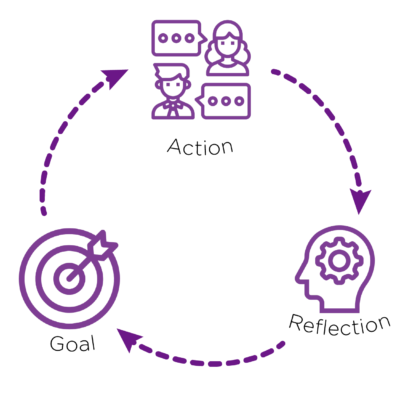Raising children has never been particularly easy, but it feels especially hard right now (the fall of 2021). More and more, those feelings are backed up by hard data:
- According to the University of Oregon’s RAPID-EC Project, there are a lot of bad things that are going up — material hardship, anxiety, and stress, to name a few.
- According to one study out of Canada, maternal depression has risen compared to previous norms. According to another, depression among pregnant women has also gone up.
- According to a preprint paper out of Brown University, children born during the pandemic have significantly reduced cognitive development compared to children born over the preceding decade.
- According to a United Nations policy brief, threats to children’s well-being, safety, and health are disproportionately high for those living in the poorest households.
That’s some of what has changed since the start of the COVID-19 pandemic. Of course, there’s also a lot that has stayed the same.
For one, parents still have hopes and dreams for their children. That’s a constant, and it’s universal. Even when the day-to-day is hard — and even when the month-to-month and year-to-year might stay hard — it’s important to come back to those hopes and dreams. It’s important to look at the big picture and to stay motivated. It’s important to remember the why.
At LENA, helping parents build positive relationships with their children is one of the things at the top of our to-do list. Through helping parents have more conversational turns with their children, we want to help them learn more about who their children are and what they respond to. And with LENA Start’s peer groups, we also want to help parents learn more about what parenting looks like through other parents’ eyes. We want to help them keep sight of their hopes and dreams and take steps toward accomplishing them.
Turning hope into action
Practically speaking, when it comes to LENA Start and LENA Home, our programs for parents and caregivers of infants, toddlers, and preschoolers, this means we want to provide a space for parents to share and connect their hopes and dreams to concrete, accomplishable action steps. Having that space can be such a strong incentive for engaging in the program!
Here are some ways we do that, with the help of our partner organizations:
- Invite parents to think about and share their hopes and dreams and why those hopes and dreams are important to them. Write them down!
- Connect the program’s focus back to these hopes and dreams at every meeting. This reminds parents why they’re spending this time with the program, and it keeps them coming back. It also increases the likelihood that they’ll carry the lessons they’ve learned with them for a long time to come.
- Connect parents with each other. Provide opportunities for them to share their goals and action steps with other parents. Use these relationships to help them build a strong network that keeps them motivated.
Reflective feedback: Goal/Action/Reflection

- What were your goals for this week?
- What strategies did you use to meet your goals?
- What did you notice about your child?
- What worked well? What was hard?
- What goals will you set next?
Providing parents with ample space for reflection and goal setting has deep and lasting impacts. We often hear our partners say things like:
- Coaching families to focus on just one Talking Tip per week that they could apply to a specific activity with their child allows them to make incremental improvements that cumulatively result in BIG talk gains.
- Hearing parents share out loud the strategies they’re using gets everyone in the group thinking about how to adopt similar ideas to increase talk in their child’s environment. The community aspect of LENA Start really makes the difference.
- Making individual goals in a group setting holds everyone accountable and really drives home that it takes a village to raise a child.
Other engagement ideas: Going back and forth between the why and the how
Keeping families grounded in why they’re engaged in your program is an ongoing motivator. Along the way, it’s also fun to add other engagement strategies to each meeting, especially those that help parents make meaningful connections and stride toward their longer-term goals. Here are a few we’ve heard from the field:
- Share parental highs and lows. The pandemic is isolating. Creating a space where parents can be honest and talk candidly about their children builds camaraderie among parents and between parents and coaches.
- Embrace humor. Children are hilarious, both on purpose and by accident. We should embrace humor. Recognizing an absurd situation for what it is can help us gain perspective. A funny anecdote can really make an idea stick.
- Use movement. Movement affects the way we think and feel. Use that principle to keep families engaged. Our partner at GrowBabyGrow uses the song “Head and Shoulders” to remind parents that a baby’s first toy is actually their own amazing body! Playful repetition and simplicity provide wonderful opportunities for little ones to get to know themselves. (And the song reminds us that adults don’t have to do it perfectly to have fun.)
- Make time for small group discussions and informal conversation — framed as times for parents to talk about their kids (funniest thing your kid did this week, your biggest parent “win” of the week, etc.). In a post last year, my colleague Brittaney wrote about ways to do this virtually.
Weekly engagement ideas keep it fun, but for deeper parent commitment it’s important to keep the program grounded in the why. Helping families share their hopes and dreams and the steps they’re taking to turn them into reality will motivate them, keep them coming back, and put what they’ve learned into practice.
As their young children grow from infants into toddlers, parents come to learn that they only have so much control over how their hopes and dreams actually play out. That is, they come to find out that children are their own people — strong-willed, unpredictable individuals. What ends up taking top priority is learning who your children are, how to maintain a positive relationship with them, and why you endure through the hard times together.
[webinar]



